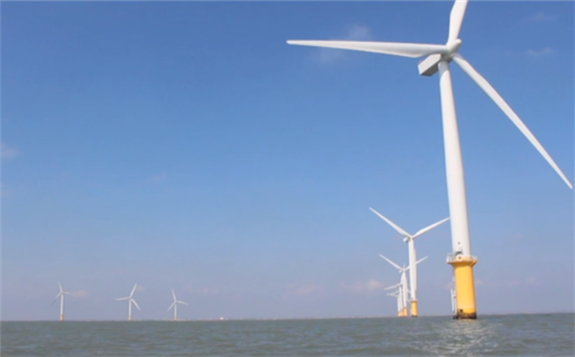 Green Party says investment drive would create 75,000 clean energy jobs, as Tories announce plan for £4.2bn Local Public Transport Fund
Green Party says investment drive would create 75,000 clean energy jobs, as Tories announce plan for £4.2bn Local Public Transport Fund
The Greens yesterday sought to underscore the scale of their environmental spending plans, announcing the party would invest £12bn a year in renewables as part of its £100bn a year Green New Deal.
Unveiling the move yesterday, the Party said its fully-costed plans would see £8.4bn a year spent on developing 40,000 new wind turbines by 2030, ensuring the UK sources 70 per cent of its power from on and offshore wind farms.
Alongside additional support for solar, geothermal, tidal and hydro technologies, the programme is designed to create 75,000 new jobs and put the UK on track to meet the Party's target of net zero emissions by 2030.
"We need a radical transformation of our energy system if we are to meet net zero carbon emissions by 2030," said former Green Party leader and candidate for Brighton Pavilion, Caroline Lucas. "Investing in community-based renewable energy will not only help reach that target, but also puts power in people's hands.
"This is the Green New Deal in action: delivering clean energy, green jobs and empowering local communities."
The plans were announced as Lucas visited a solar farm in Bristol with Bristol West candidate Carla Denyer, a former wind farm engineer.
"Before I got into politics, I was a renewables engineer," said Denyer. "But I got frustrated trying to change the world one wind turbine at a time. With this policy, the Green Party would usher in the kind of large-scale change to our energy generation that Britain needs to be carbon neutral by 2030."
The Greens have faced criticism for proposing a 2030 net zero target that many commentators regard as unfeasible, with critics warning it will drastically increase the cost of decarbonisation and will require a huge increase in the UK's cleantech skills base.
However, the Greens have countered it is justified to borrow to fund a massive increase in low carbon infrastructure spending and invest in the UK's skills base.
The news came as the Conservatives today announced plans to invest £4.2bn in local train, bus, and tram services outside of London in a bid to improve public access to low-carbon forms of public transport.
Transport Secretary Grant Shapps said the new Local Public Transport Fund would be introduced from 2022 and would "kick start the transformation of services so they match those in London".
The policy, which is designed to complement existing support for greener bus fleets, would allow eight mayoral or combined authority areas in England to bid for access to the fund. Shapps said it would ensure "more frequent and better services, more electrification, modern buses and trains and contactless smart ticketing".
However, opposition parties slammed the scale of the new fund, with Shadow Transport Secretary Andy McDonald branding it "a pathetic attempt to cover up the government's disastrous and incompetent failure to invest in public transport".
"Tory cuts have caused public transport fares to rise at twice the rate of wages and thousands of bus routes to be cut, worsening congestion on our roads as a result," he added.
Liberal Democrat Shadow Transport Secretary Wera Hobhouse also highlighted how the Conservatives "have overseen a decline of more than 200 million bus journeys since 2015 and failed to invest in our railways across the UK, all while Johnson dreams up vanity projects like his island airport, a dud garden bridge and London buses that simply don't work".
Meanwhile, the Lib Dems faced some bus issues of their own today, as activists from Extintion Rebellion dressed as bees glued themselves to the Party's electric election bus in protest at the manifesto commitment to pursue net zero emissions by 2045 - a target the protestors insist is 20 years too late.
The high profile protest group has launched a campaign of peaceful civil disobedience to coincide with the last week of the election campaign and is expected to target all the main parties in the coming days.